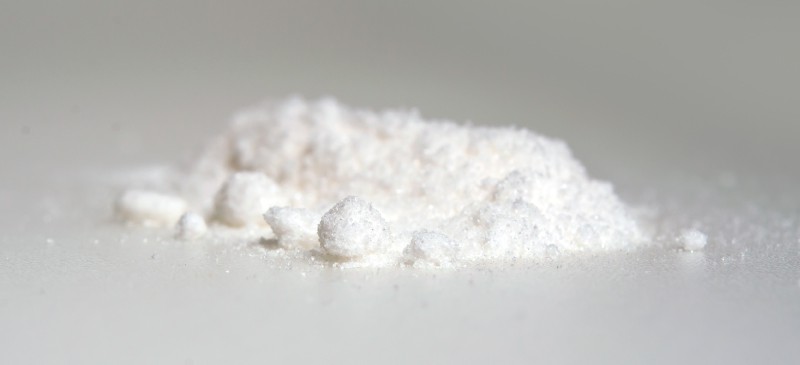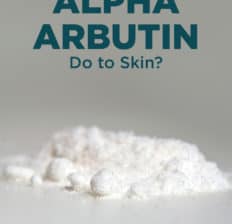This Dr. Axe content is medically reviewed or fact checked to ensure factually accurate information.
With strict editorial sourcing guidelines, we only link to academic research institutions, reputable media sites and, when research is available, medically peer-reviewed studies. Note that the numbers in parentheses (1, 2, etc.) are clickable links to these studies.
The information in our articles is NOT intended to replace a one-on-one relationship with a qualified health care professional and is not intended as medical advice.
This article is based on scientific evidence, written by experts and fact checked by our trained editorial staff. Note that the numbers in parentheses (1, 2, etc.) are clickable links to medically peer-reviewed studies.
Our team includes licensed nutritionists and dietitians, certified health education specialists, as well as certified strength and conditioning specialists, personal trainers and corrective exercise specialists. Our team aims to be not only thorough with its research, but also objective and unbiased.
The information in our articles is NOT intended to replace a one-on-one relationship with a qualified health care professional and is not intended as medical advice.
Alpha Arbutin Benefits for Skin + How to Use It
June 26, 2021

If your skin is prone to discoloration and issues such as sun spots, dark spots, acne scars and freckles, then skin “lighteners and brighteners” are going to be your best friend. Whether you choose to use facial serums, masks or moisturizers to improve your skin’s tone, you can benefit from applying ingredients to your skin including vitamin C, azelaic acid and alpha arbutin.
What does alpha arbutin do to your skin? It’s considered a “tyrosinase inhibitor” and a natural skin lightener. It works to improve skin’s tone and texture by preventing the formation of melanin, which gives skin its pigment.
It’s becoming a more commonly recommended product by dermatologists for those with hyperpigmentation and other types of discoloration. It may be an especially helpful product for people who are sensitive to the effects of other skin-lighteners, which can sometimes be irritating (such as hydroquinone, which has traditionally been the ingredient of choice for hyperpigmentation but has been shown to be dangerous in some cases).
What Is Alpha Arbutin?
Alpha arbutin (AA) is a skin care product that’s most often used to reduce uneven skin tone and hyperpigmentation.
It’s most often extracted from the bearberry plant, which is a plant in the genus Arctostaphylos. It contains beneficial compounds that regulate skin’s pigment.
It can also be extracted from certain other plants and fruits, including pears, berries and those in the Ericaceae family, as well as made synthetically in a lab.
You can use AA on its own — plus you’ll find it in some skin care serums, masks and creams.
It works primarily by stopping melanin from concentrating in certain parts of the skin. While we need a certain amount of melanin in our skin, such as to protect against cellular damage from UV light exposure, concentrated melanin formation can contribute to skin issues, such as age spots and scars.
Benefits
Does alpha arbutin really work as a skin-brightening ingredient? Here is what research, plus anecdotal evidence, suggests are some of the benefits of alpha arbutin:
1. Can Help Treat Hyperpigmentation and Uneven Skin Tone
AA seems to do a good job of addressing an uneven skin tone.
It can help reduce the appearance of age spots (brown spots), freckles and sun spots, in part by decreasing skin darkening after sun exposure/sun burns by blocking the production of tyrosinase. Tyrosinase is produced in cells called melanocytes, which make your skin darker by adding more pigment.
Topical treatment of arbutin has also been shown to treat melasma (a condition that causes gray-brown patches on the cheeks, forehead, nose and chin, often due to hormonal changes).
All of this translates to AA helping brighten, tone and add luminosity to your skin while fighting general signs of aging and damage. It also has some mild antioxidant and anti-inflammatory properties, further contributing to healthy skin.
2. May Fade Acne Scars and Discoloration
AA can help lighten dark spots and lessen the appearance of purple, red or brown acne scars. It’s also unlikely to trigger breakouts and lead to oiliness in those with acne-prone or sensitive skin.
Risks and Side Effects
Alpha arbutin is thought to be generally safe for all skin types, and it may be tolerated by those with sensitive skin better than other anti-aging or brightening treatments. It’s also effective among people with darker skin tones who are more prone to hyperpigmentation.
One reason why AA is less irritating is because its active compounds are released into the skin more slowly. While it’s recommended that you use sunscreen consistently if you’re working on evening your skin tone, AA shouldn’t make your skin more prone to sun burns.
While it’s safe to use overall, some side effects can still be experienced, such as redness and signs and irritation. Start with a small amount applied to your skin once daily, and then gradually increase your dosage/frequency of use once you know that you can tolerate it well.
How to Use (Dosage)
Can I use alpha arbutin every day?
AA can be used on your skin twice daily for the best results, such as after washing your face in the morning and before bed.
It’s best absorbed on clean skin. You can also use it with other products, such as moisturizing creams and serums, however put AA on your skin before applying any heavier moisturizers, such as those with shea butter or coconut oil.
In terms of when exactly to use it, try cleaning, exfoliating, using AA, then moisturizing and putting on sunscreen (if it’s during the daytime).
Some experts recommend using AA for about three months at a time before taking a break. You can then reuse it as needed after giving your skin some time off.
Which is better: alpha arbutin or vitamin C?
Vitamin C, kojic acid and licorice are all other popular skin brighteners that are found in things in like serums and masks. Vitamin C can be effective at reducing age spots and evening skin’s tone, however one disadvantage of vitamin C serums is that they make skin more sensitive to sunburns.
Can you combine AA with other skin care products/ingredients?
For the best results overall, try AA in combination with other skin-lightening ingredients and toners, such as retinoids, niacinamide, azelaic acid and hyaluronic acid. Together these products can help keep skin moisturized, bright and fight signs of aging.
For example, azelaic acid seems to be powerful for reducing hyperpigmentation, rosacea and other issues tied to inflammation of the skin.
You can also boost skin’s texture by applying AA and other products after a chemical peel or after you’ve exfoliated, such as with glycolic acid. Glycolci acid is a type of alpha hydroxy acid that helps remove dead skin cells, which can benefit many common skin concerns from acne to wrinkles — plus it helps skin absorb protective ingredients better.
What should you look for in an AA product?
Look for AA skin care products containing up to 2% concentration of alpha arbutin. Use the product consistency for at least one to two months, which is about how long it usually takes to see results.
Keep in mind that AA is not the same thing as beta-arbutin, which is a cheaper version that is not as effective. Look for the specific ingredient name alpha arbutin when shopping for skin care products.
Make sure to check out the expiration date so you buy a product that will still work well. Store AA products in a cool, dry place away from sunlight, which helps them remain stable and most effective.
Conclusion
- Alpha arbutin is a skin care ingredient that is mostly used to help treat age spots and hyperpigmentation.
- It helps contribute to a more even complexion by blocking production of enzymes that stimulate pigment-producing cells in the skin. This helps reduce dark spots, scars and age spots caused by sun damage.
- AA can be used twice daily and is generally safe for all skin types, including those who are prone to acne. It can also be combined with other similar ingredients, such as vitamin C, hyaluronic acid and kojic acid, for the best results.
Comments
Please keep comments under 200 characters.







On our website, we suggest up to date and the best IT solutions an eye to your vocation] kodx.uk
Бухгалтерия по цене двух чашек кофе: за кого нас держат?
92797 774615This is such a great post, and was thinking much the same myself. Another great update. 198443
M using alpha arbutin 2% from silki my 4th day today it makes me more darker
Mood of putting alpha arbutin in your body lotion production.
How effective is alpha arbutin when it comes to its application on the lip skin. Can anyone please throw some light on this.
For DYI routine, can Alpha Aubutrin be mixed with Ferulic Acid, Koji Acid and Niacimide in a Vitamin C Cream base?
Hydroquinone has ruined my skin and I want to get it balanced and healthy again!
Thank you for any sound advice you have to offer!
Waiting for a reply….
How long of a break should one take from alpha arbutin
How long should one take a break?
I have also been worried about my spots and uneven skin tone as I get older. But I have found that Anairui’s turmeric products can really help fade dark spots.
Just purchase The Inkey Alpha Arbutin, and wanted to find out what it pairs with, since I have melasma on my upper lip. Went to the dermatologist who informed me that it is caused by menopause. I am 59 years old. I am using many other products, and don’t want them to cancel out. Thanks for the article. very helpful.
I found this article informative in every way to know about the product and how to use it. Thank you
How long can you use A 2% Alpha Arbutin for hyperpigmentation can you use it for a year straight? Till hyperpigmentation gone.